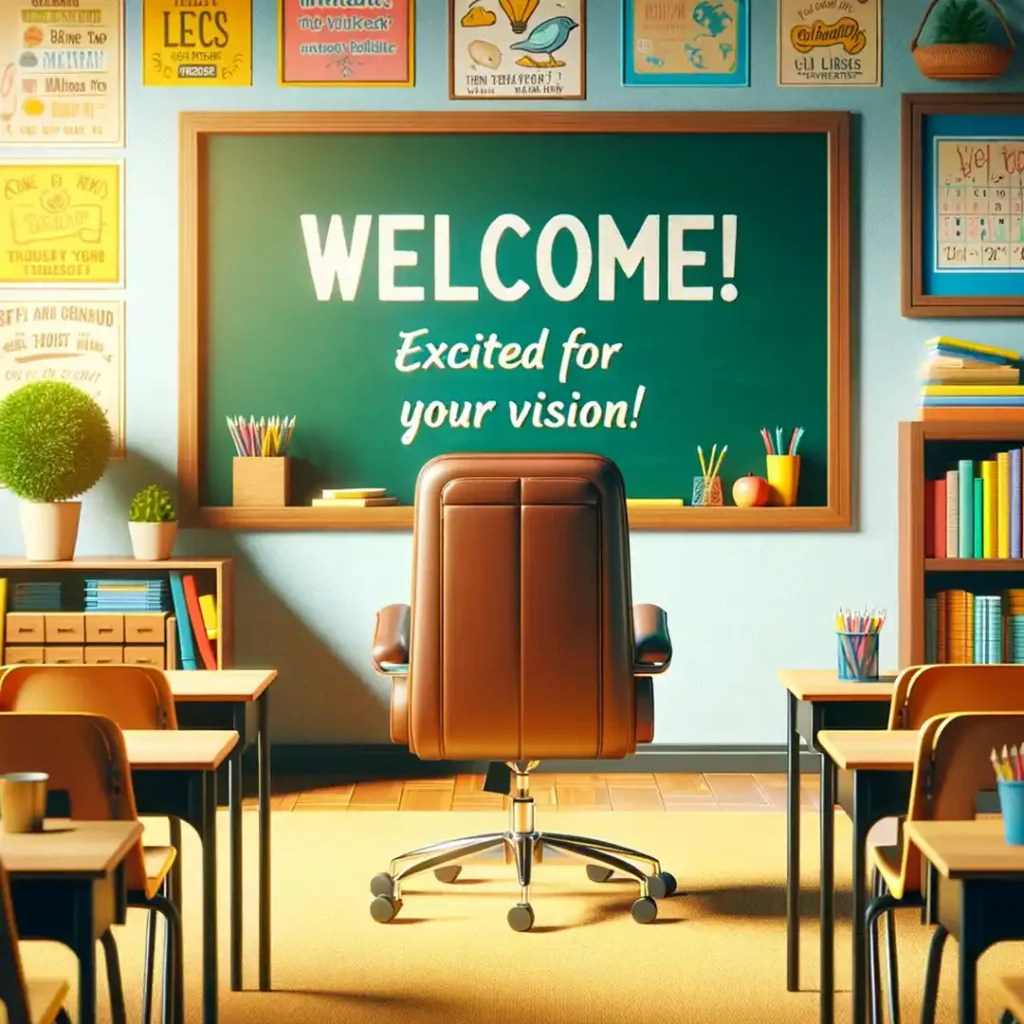In the ever-evolving landscape of K-12 education, the job interview process for teachers extends beyond merely responding to questions. It is equally crucial for aspiring educators to pose their own inquiries. This proactive approach serves as a dual-purpose tool: it reveals a candidate’s enthusiasm and preparedness and helps them gauge the school’s suitability for their professional goals and values. Engaging in this two-way dialogue transforms the interview from a mere assessment into a meaningful conversation, laying the groundwork for a potential partnership between teacher and institution.
By asking pertinent and thoughtful questions, teacher candidates demonstrate a deep commitment to the field of education. Such inquiries reflect their dedication to understanding the nuances of the specific educational environment they aim to join. This level of insight is indicative of a candidate who is seeking a job and also looking to contribute significantly to the school’s culture and success. It’s a sign of a teacher who is invested in their personal growth and the advancement of their students, aligning their professional aspirations with the ethos of the prospective school.
Understanding School Culture and Values
Questions About the School’s Educational Philosophy and Values
To understand the heart and soul of a school, inquiring about its educational philosophy and values is paramount. Candidates should ask questions like, “What are the core principles that guide your curriculum and teaching methods?” or “How does the school’s mission reflect in everyday classroom experiences?” These questions reveal the philosophical underpinnings of the school’s approach to education and how they translate into practical, day-to-day teaching and learning.
Inquiries Regarding Student Diversity and Inclusivity Practices
In today’s diverse educational landscape, understanding a school’s commitment to inclusivity and diversity is essential. Questions such as, “How does the school support students from diverse cultural and socioeconomic backgrounds?” or “Can you provide examples of how inclusivity is integrated into the curriculum and school culture?” help candidates assess how the school embraces and celebrates diversity. This is crucial for educators who are keen to work in environments that foster equity and provide all students with equal opportunities to succeed.
Discussing the School’s Approach to Parent-Teacher Communication and Community Involvement
The relationship between a school and its wider community is a vital aspect of its culture. Questions like, “How does the school facilitate communication and engagement with parents?” or “What role does the school play in the local community?” enable candidates to understand the school’s approach to building and maintaining these crucial connections. This insight is invaluable for educators who prioritize collaborative relationships and community involvement as key components of the educational experience.
Clarifying Roles and Expectations

Questions About Specific Grade Levels or Subjects You Will Be Teaching
Asking about the specific grade levels or subjects you’ll be teaching is more than a logistical inquiry; it reflects your eagerness to prepare and tailor your approach to the unique needs of each age group or subject area. For example, teaching strategies and content delivery for elementary science differ significantly from high school history. Understanding these differences allows you to envision how your skills and experiences align with the students’ educational journey.
Understanding Expectations Around Curriculum Design and Classroom Management
Curriculum design and classroom management are the twin pillars supporting effective teaching. Inquiring about a school’s expectations in these areas provides insight into their educational philosophy and operational dynamics. Are teachers expected to strictly adhere to a prescribed curriculum, or is there leeway for creativity and adaptation? Similarly, understanding the preferred approaches to classroom management—whether they lean towards a more traditional or progressive stance—can reveal much about the school’s culture and the type of support you can expect in handling classroom challenges.
Inquiring About Support for Special Needs Students and Differentiated Instruction Strategies
The mark of a truly inclusive school lies in its support for special needs students and its implementation of differentiated instruction strategies. By asking about these, you not only convey your commitment to meeting the needs of all learners but also gauge the school’s readiness to provide equitable learning opportunities. This inquiry can uncover the resources and training available to you, ensuring that you can cater to diverse learning styles and needs effectively.
Uncovering Professional Development Opportunities
Professional growth is a critical component of a fulfilling teaching career. Your inquiries in this area can reveal much about how the school values and invests in its teachers.
Asking About Ongoing Training and Professional Development Programs
Ongoing training and professional development are not just about enhancing your skills; they reflect a school’s dedication to educational excellence and teacher empowerment. Questions about these programs indicate your desire to grow and adapt in a rapidly changing educational environment. Such programs can range from workshops on the latest educational technologies to seminars on new instructional methodologies.
Understanding the School’s Support for Teacher Innovation and Leadership Roles
A school’s stance on teacher innovation and leadership roles speaks volumes about its culture. Inquiring about this demonstrates your ambition to not only be a part of the teaching community but also to contribute to its evolution. Does the school encourage teachers to take on leadership roles or pilot innovative teaching methods? Your participation in such initiatives can be both professionally rewarding and impactful in shaping the educational experience of your students.
Inquiring About Mentorship Opportunities and Peer Collaboration
Finally, understanding the extent of mentorship and peer collaboration available in a school can significantly influence your professional journey. These aspects are crucial for both new and experienced educators. They provide a platform for sharing best practices, offering support, and fostering a sense of community among teachers. By asking about these opportunities, you emphasize the value you place on collaborative growth and continuous learning within the educational community.
Probing into Resources and Support

The availability of resources and support systems is a cornerstone of effective teaching. Understanding what a school offers in these areas can significantly impact your ability to deliver high-quality education.
Questions Regarding Classroom Resources and Technology Integration
In an age where technology is integral to education, understanding a school’s stance on technology integration is crucial. Ask about the availability of classroom resources like smartboards, computers, and educational software. This not only reveals the school’s commitment to modern teaching methods but also helps you anticipate the environment in which you will be working.
Understanding the Support Available for Extracurricular Activities and Clubs
Extracurricular activities and clubs are vital for holistic student development. Inquiring about the support for these programs shows your interest in the overall development of students beyond academics. It also gives you insight into how much the school values and invests in student engagement and diverse interests.
Discussing Access to Administrative and Counseling Support
The level of administrative and counseling support available can significantly affect your ability to manage classroom dynamics and address student issues effectively. Questions in this area can reveal the support structures in place for dealing with academic, behavioral, and emotional challenges faced by students.
Strategic Questions to Demonstrate Your Fit

Asking strategic questions can demonstrate how well you align with the school’s vision and goals.
Linking Your Teaching Philosophy and Experiences with the School’s Vision
Discuss how your teaching philosophy and past experiences resonate with the school’s vision. This demonstrates your potential to be a valuable and harmonious addition to their team.
Discussing How You Plan to Contribute to Student Success and School Improvement
Talking about your plans for contributing to student success and school improvement shows your commitment and proactive approach to education. It indicates that you are not just seeking a job, but a role where you can make a significant impact.
Inquiries About the School’s Long-Term Educational Goals and Your Role in Achieving Them
Understanding the school’s long-term goals and discussing how you can contribute to achieving them shows your interest in being part of the school’s future. It reflects a forward-thinking mindset and a dedication to educational advancement.
Conclusion
The questions you ask in an interview are not only for your own understanding but also communicate your values, priorities, and vision as an educator. They can significantly impact the interviewers’ perception of you and your fit for the role.
Your questions should reflect your educational values and goals. They should convey your dedication to not just fulfilling a role, but to contributing to a learning environment that aligns with your beliefs about education. This alignment is crucial for long-term satisfaction and success in your educational career.


